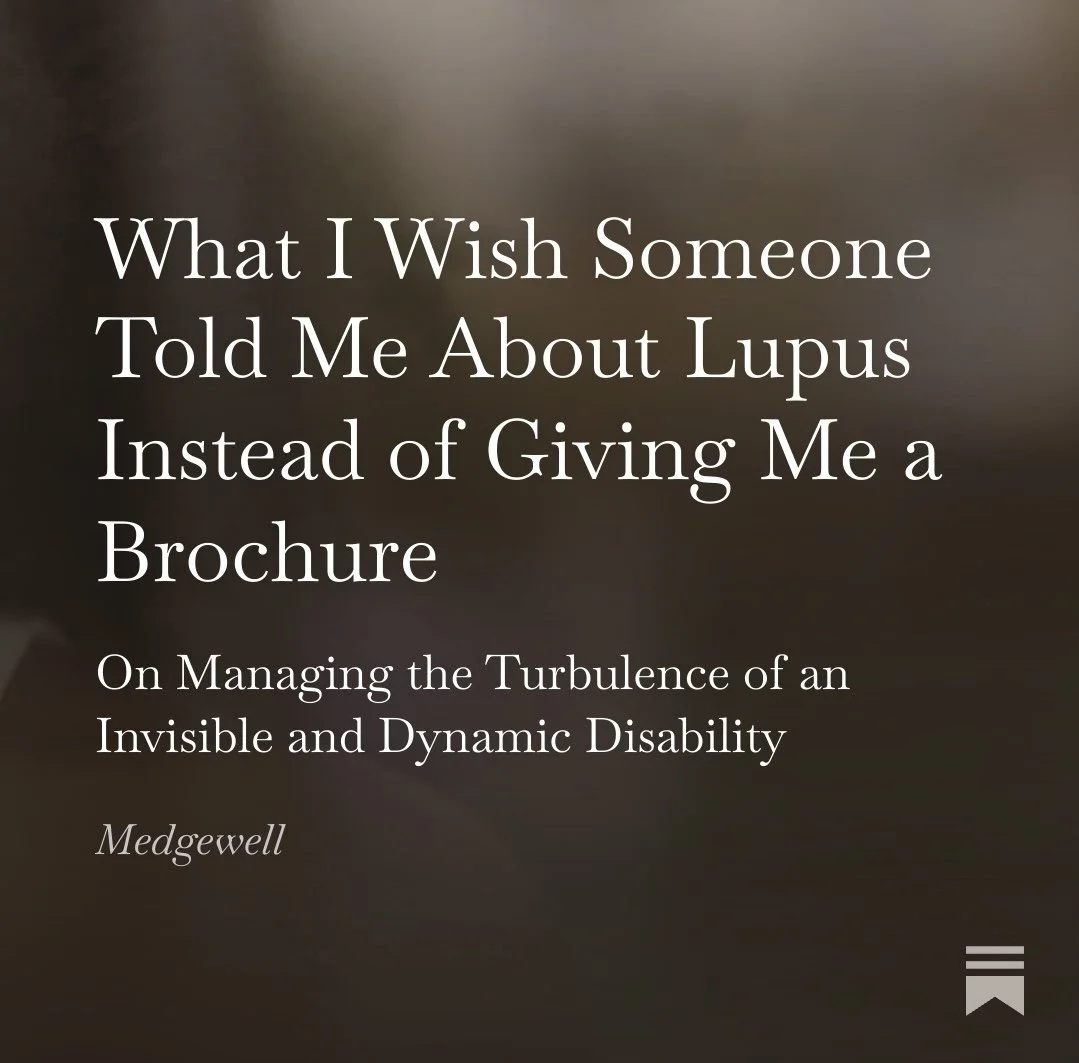What I Wish Someone Told Me About Lupus Instead of Giving Me a Brochure
Last month marked the 13th anniversary of the day my doctor (rheumatologist) said: “Looks like you have lupus.”
On that day, I was given 3 things:
My first prescription of Plaquenil
Paperwork to get regular blood work and urine test done
A brochure about Lupus
I got out of my appointment and returned to my 9-5, as if my life didn’t change.
The Impact of Lupus on Black Women
I was 22 when I was diagnosed. I was one year fresh out of graduating university and on my way to pursue a career in public health all the while nursing my poetry writing life. The brochure I received on the day of my diagnosis didn’t tell me that Lupus disproportionally affect BIPOC women and especially black women. There would’ve been no way for me to even find statistics like this in Canada because Canada does not record race-based health data. I remember after my doctor dropped the news that I had lupus, I felt relief. I was relieved that I was finally believed and there was a clinic word that defined all the symptoms that my body was experiencing the past 6 months leading up to that day. The next question he asked me was about family history.
Here I was, a first-generation immigrant, thinking of my grand-parents who lived all their lives in rural regions of Haiti. Would they have access to a rheumatologist? What is the Creole word for Lupus? They didn’t speak English. I couldn’t answer him. I didn’t know anyone with Lupus.
